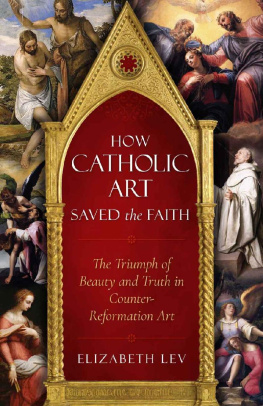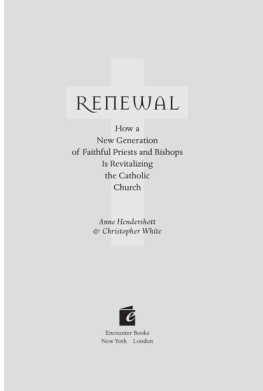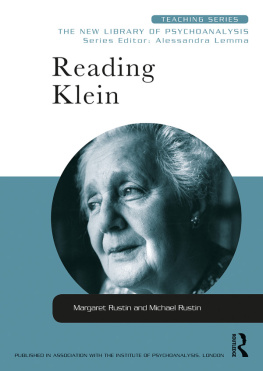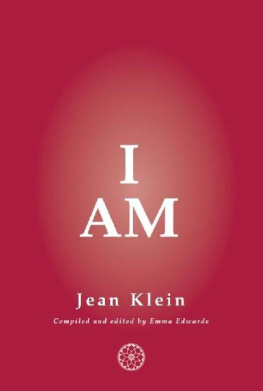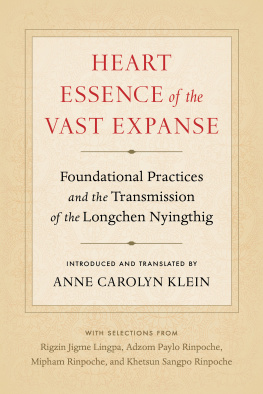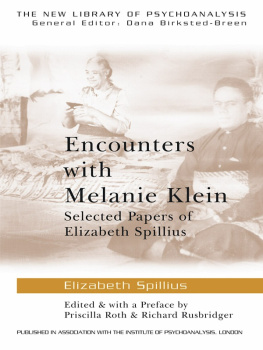Elizabeth Anne Klein - God : what every Catholic should know
Here you can read online Elizabeth Anne Klein - God : what every Catholic should know full text of the book (entire story) in english for free. Download pdf and epub, get meaning, cover and reviews about this ebook. year: 2019, genre: Religion. Description of the work, (preface) as well as reviews are available. Best literature library LitArk.com created for fans of good reading and offers a wide selection of genres:
Romance novel
Science fiction
Adventure
Detective
Science
History
Home and family
Prose
Art
Politics
Computer
Non-fiction
Religion
Business
Children
Humor
Choose a favorite category and find really read worthwhile books. Enjoy immersion in the world of imagination, feel the emotions of the characters or learn something new for yourself, make an fascinating discovery.

- Book:God : what every Catholic should know
- Author:
- Genre:
- Year:2019
- Rating:4 / 5
- Favourites:Add to favourites
- Your mark:
- 80
- 1
- 2
- 3
- 4
- 5
God : what every Catholic should know: summary, description and annotation
We offer to read an annotation, description, summary or preface (depends on what the author of the book "God : what every Catholic should know" wrote himself). If you haven't found the necessary information about the book — write in the comments, we will try to find it.
God : what every Catholic should know — read online for free the complete book (whole text) full work
Below is the text of the book, divided by pages. System saving the place of the last page read, allows you to conveniently read the book "God : what every Catholic should know" online for free, without having to search again every time where you left off. Put a bookmark, and you can go to the page where you finished reading at any time.
Font size:
Interval:
Bookmark:
WHAT EVERY CATHOLIC SHOULD KNOW
WHAT EVERY CATHOLIC SHOULD KNOW
Elizabeth Klein
IGNATIUS PRESS AUGUSTINE INSTITUTE
San Francisco Greenwood Village, CO
Scripture quotations are from the ESV* Bible (The Holy Bible, English Standard Version*), 2001 by Crossway, a publishing ministry of Good News Publishers. Used by permission. All rights reserved.
Excerpts from the English translation of the Catechism of the Catholic Church for use in the United States of America copyright 1994, United States Catholic Conference, Inc.Libreria Editrice Vaticana. English translation of the Catechism of the Catholic Church: Modifications from the Editio Typica copyright 1997, United States Conference of Catholic BishopsLibreria Editrice Vaticana
Cover art: Christ Pantocrator
by Fr. Justinian
Cover Design: Lisa Patterson
2019 Ignatius Press, San Francisco,
and the Augustine Institute, Greenwood Village, CO
All rights reserved
ISBN 978-1-7338598-8-2 (pbk)
ISBN 978-1-950939-01-5 (hbk)
ISBN 978-1-64229-107-0 (ebk)
Library of Congress Control Number 2019941608
Printed in Canada
We Should Desire to Know God
Given the title of this book, you may be wondering why it is so short. How could there be a shortcut or quick guide for knowing about God? Isnt the Christian life about coming to know God more and more? It is true that we can never know everything about God, and that we as Christians are always seeking to know God better. This book, however, has a specific focus: in it you will find a starting point for understanding what Christians mean when they say God, and to whom they are referring when they use this name. Maybe it should be obvious what we mean when we say this word (God), since it is so central to our faith, but we encounter misconceptions about its meaning all the time. And, if we are honest, even we might admit that lurking somewhere in the back of our minds we have an image of God as a nice old man sitting in the sky.
There is, however, sometimes a resistance to thinking about God, especially in a theological or philosophical way. We might protest that we are not smart enough to do theology and that less is more when it comes to contemplating the divine. We might even think that too much theology detracts from simple faith. In fact, we all know people with a strong faith who have not opened a single theology book! But if God is perfect, wonderful, all goodness, love itselfas the Bible tells us in 1 John 4:8it would be strange indeed if we did not want to give our whole selves to God, including our minds. The Lord himself, when asked to state the most important commandment, responded: [Y]ou shall love the Lord your God with all your heart and with all your soul and with all your mind and with all your strength (Mk 12:30). Jesus is quoting from Deuteronomy 6:5, but he adds the words with all your mind, making clear to us that we should love God with our whole selves and with all the faculties available to us as human beings. It would be a bad sign in a marriage, after all, if a wife told her husband that after the wedding day she no longer wanted to learn anything more about him, and that knowing too much about him might make her love him less! She would probably end up loving the image of her spouse that she had in her head rather than a real person. Likewise, we should want to love the one true God and not the God of our imagining. And, since God is perfect, knowing more about him can only make us love him more, not less. When we profess faith in God, or experience a conversion to faith, this is not the end of our coming to know God, but the beginning.
It is easy to see at once, moreover, how foggy thinking about God can deeply affect our faith and our ability to communicate it to other people. To take the example of God as an old man: if we think of God, even in the back of our minds, as a giant version of a human being, it is no small wonder that our faith in God remains only a version of our faith in other people. And, we might add, we can see why many people around us reject God out of hand, because they judge God by the standards of human behavior and limitations, and therefore ultimately see God as an invention of the human imagination. Thinking about God as a human being whose power, love, and size have simply been multiplied by a very large number is only one example of how we might think about God in a wrongheaded way. We might think about God as a nebulous force of goodness and happiness in the world, about whom we can say very little in specific terms. Or, we might think that God is roughly equivalent to the Big Bang, that he is the something that sets the world in motion, but that he remains at a distance. In these cases, the God of the Bible is a fairy tale and religion has really nothing to do with us or our everyday lives. All of these ways of thinking about God (even if I have exaggerated them) represent ideas that we have encountered or that we ourselves have perhaps even entertained to a greater or lesser degree.
If we want to love God, to serve God, and to make God the center of our lives, we would do well to settle this question at least in some small way: Who is God? What sort of God is the Christian God? To return to the analogy of marriage: when two people intend to get married, they spend time getting to know one another before they pledge to live their lives together. Neither the bride-to-be nor the groom-to-be would be discouraged by the fact that one person can never completely know another. Therefore, if we intend to spend eternity with God, we should also spend some time getting to know something about him. Let us not be discouraged by the fact that God is beyond our complete knowing.
This book will therefore begin by asking what we mean when we say God. Who does God say that he is in the Bible, and what do we mean when we use words to describe God: words such as all-knowing (omniscient), all-powerful (omnipotent), infinite, eternal, and the like? By attempting to understand our words, we can push ourselves a little further in coming to know what the word God means. The term that is often used to refer to the what of God is the word nature. So, we will first consider the nature of God and why it matters for our faith. We will then discuss what is called the doctrine of the Trinity, the uniquely Christian claim that God is three-in-one. When a Catholic professes faith in God, it is in God as Trinity: God as Father, Son, and Holy Spirit. Coming to know God as Trinity is essential to understanding to whom the word God is referring. After we have some sense of the what of God (the nature of God) and the who of God (the Father, Son, and Holy Spirit), we will turn to the Incarnationthat is, we will talk about what it means for God to have become a human being in Jesus Christ. It is only through Christ that we can meet God in the flesh and, therefore, understand the destiny of humankind and our hope of heaven.
Hopefully this book will serve as an occasion for you to love God with your mind, and to equip you to explain the essentials of the faith to others. There are many rich aspects of our Christian faith, but compared to God himself these are nothing. For this reason, in the creed, the first thing we profess is belief in God (I believe in God, the Father almighty... ). Or, as the Catechism of the Catholic Church says, The mystery of the Most Holy Trinity is the central mystery of Christian faith and life. It is the mystery of God in himself. It is therefore the source of all the other mysteries of faith, the light that enlightens them.
Gods Name
If we want to understand what a Christian means by the word God, the best place to start is the Bible. We can hear about a person from others, we can gather information about someone from various sources, but we would not say we know a person unless he speaks with us. Likewise, it is in the Bible where we encounter God and his own words about himself, where we can hear him speak to us and therefore come to know him. One of the most dramatic moments in the Bible when God tells us something about himself is found in Exodus 3, where Moses has the gumption to ask God directly for his name. Moses, at this time, is living as a shepherd in the land of Midian. One day, while he is minding his own business and tending his sheep, he sees something strangea bush that is on fire and yet is not burning upand he turns aside to find out what this sign could mean. When he approaches the bush, the voice of God tells him to remove his sandals, for he is standing on holy ground. God then proceeds to introduce himself as the God of Abraham, Isaac, and Jacob and to tell Moses that he has been chosen to lead his people out of slavery in Egypt. Moses is not initially pleased with Gods plan. He protests that he is not equal to the task and that no one will believe he has been commissioned by God. Moses then asks for Gods credentialssome divine identifierin order that he might tell the Israelites who has sent him. Gods response?
Font size:
Interval:
Bookmark:
Similar books «God : what every Catholic should know»
Look at similar books to God : what every Catholic should know. We have selected literature similar in name and meaning in the hope of providing readers with more options to find new, interesting, not yet read works.
Discussion, reviews of the book God : what every Catholic should know and just readers' own opinions. Leave your comments, write what you think about the work, its meaning or the main characters. Specify what exactly you liked and what you didn't like, and why you think so.


